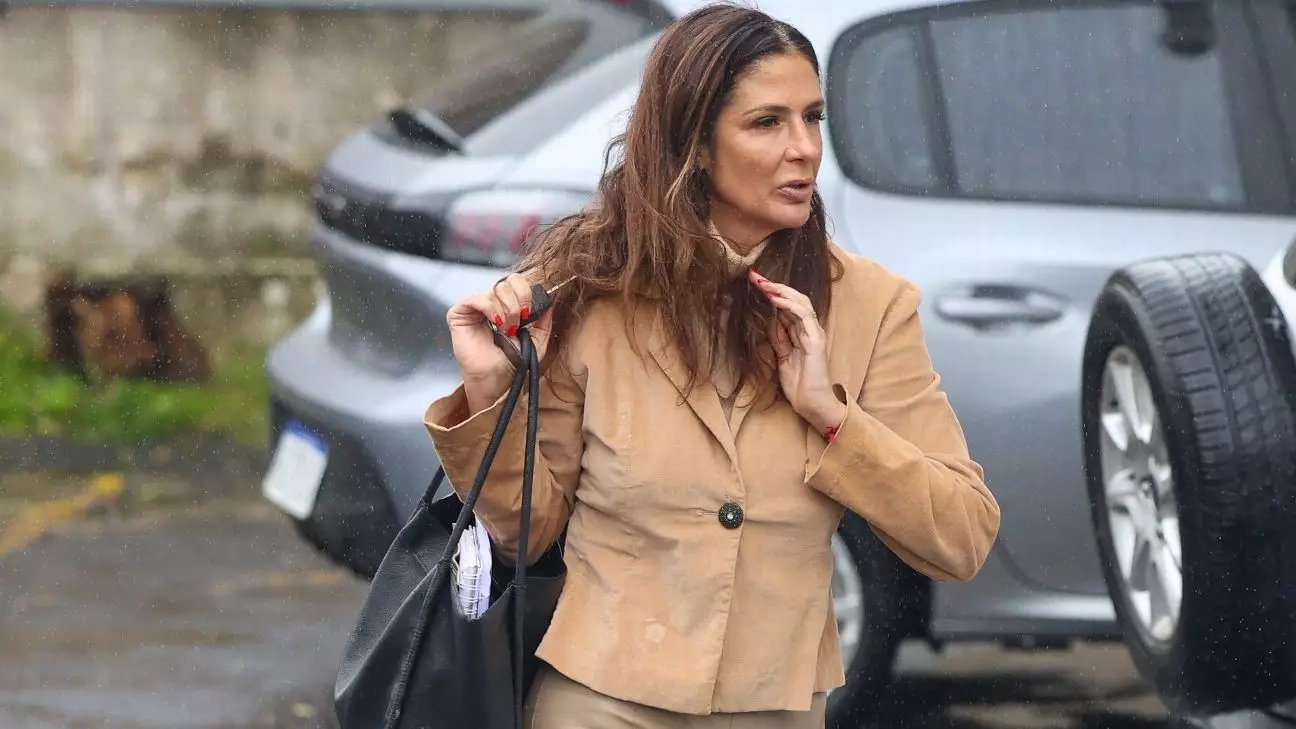An extraordinary turn in the saga surrounding Diego Maradona’s untimely death has sent shockwaves throughout Argentina and the international soccer community. An Argentine court declared a mistrial for seven health professionals accused of negligence in caring for the legendary soccer player, whose demise on November 25, 2020, sent waves of mourning across the globe. This mistrial is not just a legal setback; it’s an emotional earthquake for those who have been following the case with bated breath. After over two months of gripping testimonies and emotional turmoil in the courtroom, Argentine society now finds itself back at square one.
The judges’ decision to restart the trial stems from controversies surrounding one of the judges, Julieta Makintach. Her involvement in a forthcoming documentary titled “Divine Justice” sparked allegations of ethical breaches that ultimately led to her resignation. The film, which has gained notoriety for intertwining archival footage of Maradona’s unmatched glory on the field with elements of the ongoing trial, was highlighted in court during the prosecution’s plea to investigate the implications of Makintach’s role. Such a scandal distracts from the serious underpinning of the trial—whether negligence played a role in the fall of one of soccer’s most iconic figures.
The Emotional Toll on the Families Involved
The emotional layers added to this case are profound. Veronica Ojeda, Maradona’s ex-partner, publicly expressed her heartbreak following the mistrial announcement, lamenting five years of painstaking work that she felt was tossed aside. The anguish felt by Ojeda encapsulates the struggle of countless individuals affected by Maradona’s legacy, both personally and collectively. It underscores how the judicial system can cyclically re-traumatize victims and their families, making the endeavor for justice feel Sisyphean.
“Five years of work have been thrown in the trash,” Ojeda wept, her fears mirroring many who had hoped for closure in what has become more than a court case—it’s a national wound that refuses to heal. For many, Maradona’s persona extended beyond that of a soccer player; he was a symbol of hope, a reflection of Argentine culture, and for Ojeda, a beloved companion. The fallout from this decision not only rekindles the pain of loss but adds layers of frustration and despair for those seeking accountability.
Legal Implications and Public Sentiment
The mistrial raises important questions about the integrity of the legal process in high-profile cases that possess a significant emotional weight. While the judiciary aims for impartiality, the interplay of celebrity, media, and public opinion can overshadow the very essence of what justice should mean. The role of the judiciary in maintaining public trust is crucial; with a new trial looming on the horizon, one can only speculate whether an unbiased panel will be formed. The judges have suggested that a higher court will randomly select new judges by lottery, yet it remains unclear if this procedure will enable a fair outcome or will further taint the process.
As legal entities debate the ramifications of the mistrial, the public sentiment is teetering on a precarious edge. An overwhelming majority of Argentines view Maradona as a national hero, a sporting deity whose every move was followed with fervor. Yet, the very same adulation complicates perceptions of justice when the deceased’s medical team stands accused of negligence. The potential alliance of charismatic public figures caught in the undercurrents of litigation and emotional interest serves to cloud the issue further.
The Road Ahead: Justice or Fumble?
As the dust settles from this unprecedented mistrial, one can’t help but ponder what lies ahead. The relentless media coverage, coupled with public scrutiny, means that the saga is far from over. A timeline for the new trial has yet to be unveiled, creating a void filled with questions and speculation. Will the new judicial panel exercise diligence and sensibility, or will yet another scandal diminish faith in the judicial system?
The complexities of the case are not merely legal; they are profoundly human. The ongoing battle seeks not only accountability but also a semblance of closure for those left in the wake of Maradona’s departure. The national spotlight remains on this unfolding drama. Whether it leads to healing or further agonizing disappointment is, at this point, a matter of chance. With the story of Diego Maradona’s life, the quest for justice becomes an ironic echo of the highs and lows experienced both inside and outside the soccer field.

